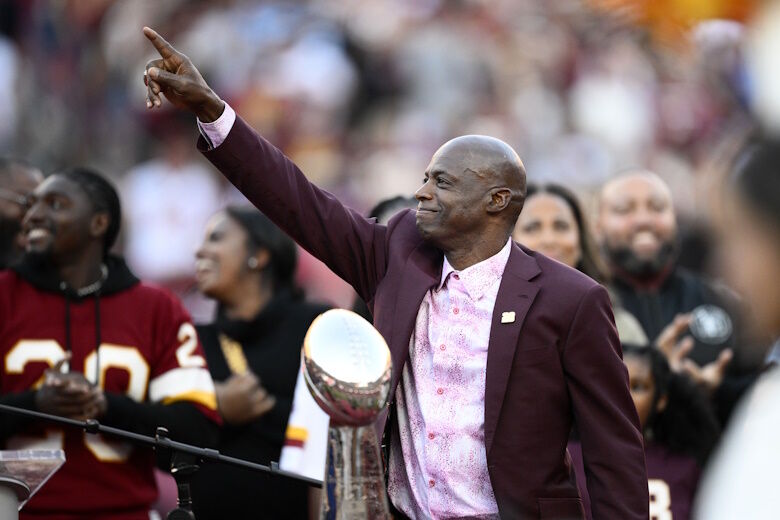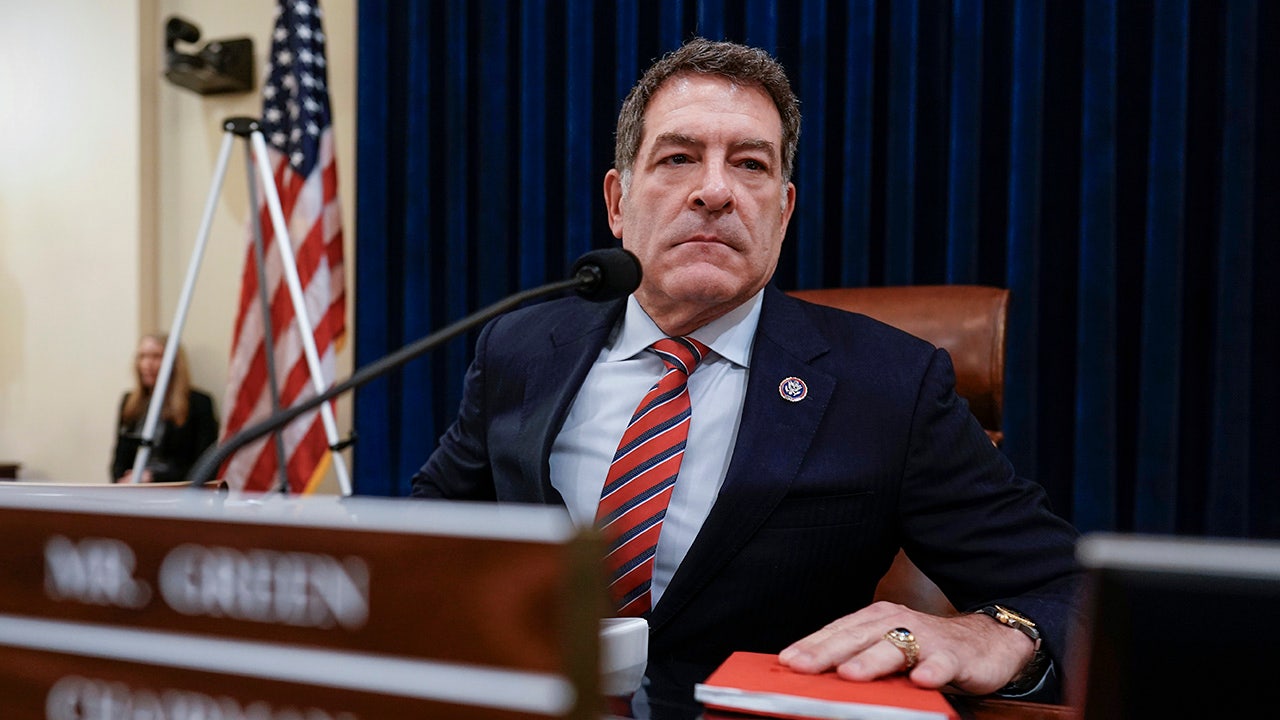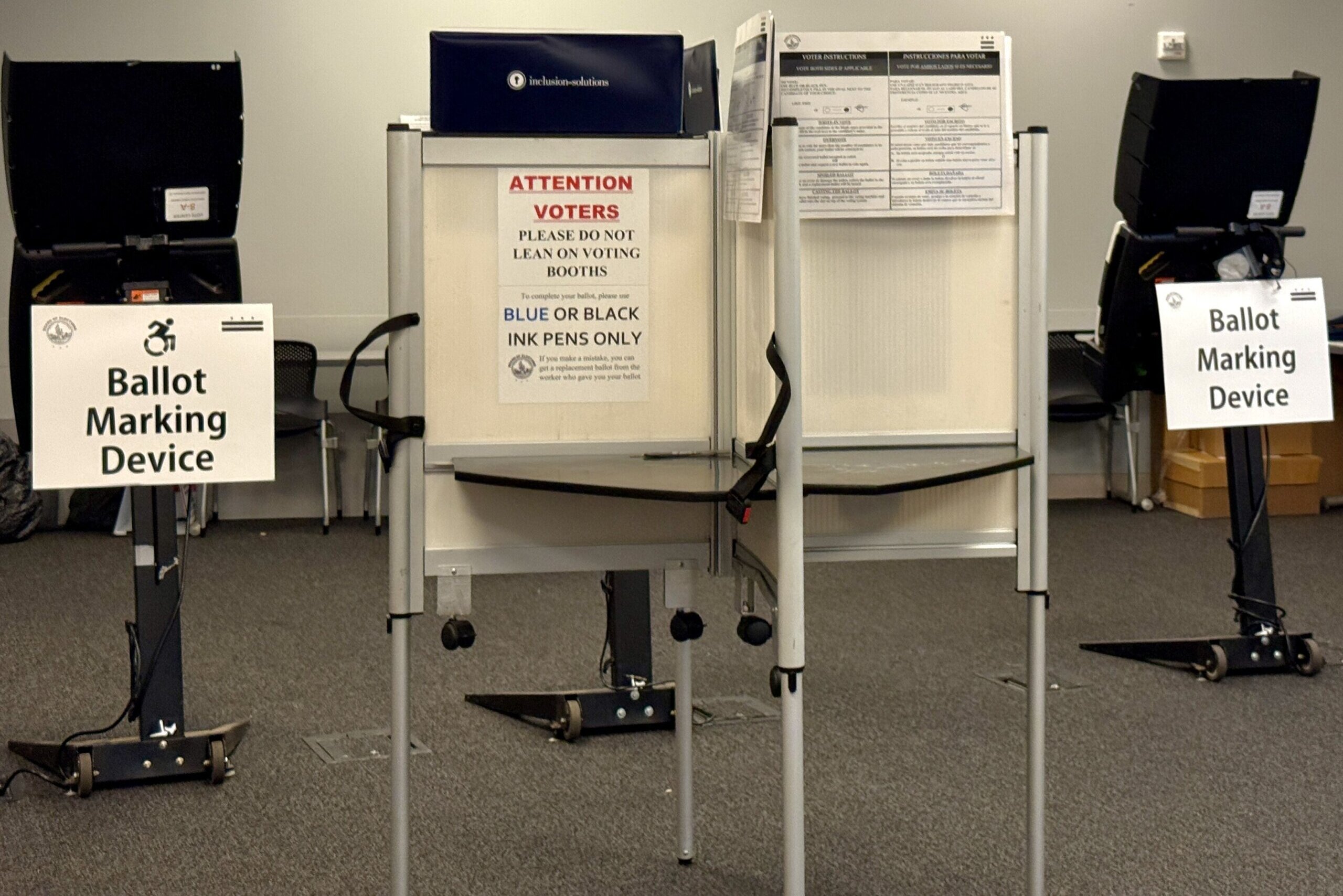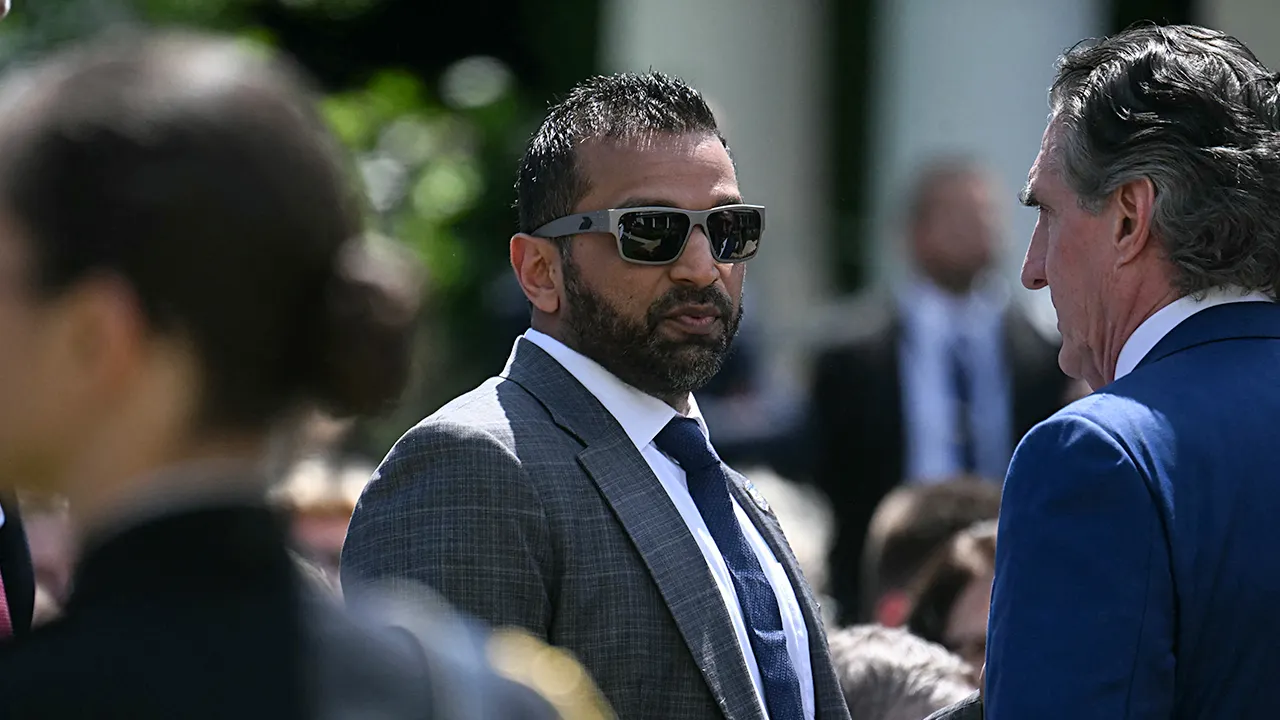Amazon has fallen so far behind schedule in creating new jobs at its Northern Virginia headquarters that its workforce at those offices shrank last year, the company confirmed, underscoring how a project that it had initially pitched as an economic jolt is instead hitting a slowdown.
Washington
Amazon HQ2 was supposed to add jobs last year. It shed them instead.

The company was supposed to gradually add 25,000 new jobs at HQ2 by the end of the decade, according to its agreement with the commonwealth, including more than 2,500 new jobs last year. Instead, it lost more than 200 existing positions in Arlington in 2023. (Amazon founder Jeff Bezos owns The Washington Post.)
“Last year we made the tough decision to eliminate a small percentage of corporate roles and to slow hiring around the globe, which impacted our forecast growth in HQ2,” Holly Sullivan, the company’s vice president of worldwide economic development, said in a statement Monday evening.
Sullivan said the company has not abandoned its target of 25,000 jobs. She called the project “a long-term investment” and noted that there are 1,000 open positions at HQ2, where two soaring office towers — part of a total $2 billion investment — opened last year.
But amid a shift in work habits prompted by the coronavirus pandemic and a squeeze in the tech industry, the downturn in hiring marks another setback in the boost Amazon had initially promised to the area. Even as its contractor began installing utilities last month on an empty plot of land at HQ2, construction on another three office buildings and futuristic “Helix” supposed to go there has been on pause for more than a year.
To receive subsidies from the state, Amazon must submit a document to the commonwealth every spring detailing its total hiring progress at HQ2 since 2019.
Its application last April said the company had hired 6,939 employees for qualifying jobs, out of 8,000 total positions in Arlington. Amazon’s report this year said it had filled 6,644 qualifying jobs and had 7,791 total employees assigned to HQ2.
Virginia’s incentives for the company are supposed to reward its progress toward a goal of bringing 25,000 new jobs to Arlington by 2030. They are also structured to ensure that the company maintains those new jobs for at least five years.
State officials will pay the company $22,000 for each full-time job with an average salary of $150,000, according to the contract. (That salary is supposed to climb slightly each year; it was $159,205 last year.)
Amazon’s application last year asked the state for nearly $153 million in taxpayer subsidies to be paid by late 2026. The hiring slump reflected in the most recent report probably means that Virginia’s payout could drop by several million dollars if hiring stays flat in the next year and a half.
Because the company submitted a “progress report” this year instead of a formal application, Virginia will probably not pay Amazon any incentives in 2027. The company had also declined to apply for incentives from the commonwealth until 2021, citing pandemic-related challenges, even though it had consistently been ahead of schedule on hiring at HQ2.
This year’s report marks the first time that Amazon has fallen behind on its hiring goals in Arlington.
This story is developing and will be updated.

Washington
HS Basketball: Cory McKinney taking over Washington girls program

South Bend Washington High School has turned to one of its own to lead its girl’s basketball program.
Cory McKinney, a former standout player at Washington, is the new leader of the Panthers.
McKinney, a 2018 Washington graduate, replaces Steve Reynolds. Reynolds resigned in March and then accepted an assistant coaching position at the University of Texas at Arlington in April. Reynolds was 189-89 in 11 seasons at Washington.
McKinney, who served as an assistant coach for the Washington boys hoops program during the 2024-25 campaign, is ready to take on his first head coaching position.
“This is a blessing and surreal to me,” said McKinney. “I grew up down the street from Washington. I want to be on the West Side and make a difference here. This is where I’m from.”
McKinney averaged a team-high 13.3 ppg. his senior season in 2017-18 as the Panthers finished 15-9 under Ryan Varga. Varga left as Washington’s boys coach in May to become the new boys coach at Jimtown High School. Maurice Scott, who coached the Washington girls team prior to Reynolds, is the new boys coach at Washington.
McKinney takes over a program in a rebuilding phase after a stellar six-year run. The Panthers went 138-25 the past six seasons with five sectionals, three regionals, two semi-states and the Class 3A state title in 2022. That 2021-22 squad that finished 27-3 had six Division I players on it, led by Mila, Amiyah and Kira Reynolds, three daughters of coach Reynolds.
Washington posted a 24-2 mark a season ago with a 53-43 loss to Warsaw in a Class 4A regional game. The Panthers lost six seniors from a roster of 12, including stars Kira Reynolds, Ryiah Wilson and Monique Mitchell. Mitchell was an Indiana All-Star, while all three are slated to play Division I college hoops this upcoming season. The Panthers did not have a junior varsity team last season.
“We have to get to work and start from the ground up,” McKinney said. “Our numbers in the program are to be determined, but it’s very important to have a feeder system. We plan to have a camp later in July for both the boys and girls, so we will see how that goes.”
Washington Athletic Director Garland Hudson feels confident that McKinney is the man for the job.
“Cory is a home grown guy and this is something he wanted,” Hudson said. “I just feel this is how it was supposed to be. He has a passion for it.
“It’s definitely a transition time for sure for our girls basketball program. It’s going to take a group effort to support him, but that’s nothing new at Washington. That’s what we do here. Everyone supports everyone in our athletics. We’re a family here.”
McKinney went on to have an outstanding college career playing at Indiana Tech in Fort Wayne. He was a three-time Conference Defensive Player of the Year, the program’s all-time leader in assists and minutes played and helped the Warriors finish as NAIA national runner-up in 2023. The 25-year-old teaches at Washington and his wife Le Anna is expecting their first child in September.
“I’m pretty confident in my ability and I’m looking forward to molding the program into what I want it to be,” McKinney stated.
“The main things I plan for people to see this season from our team is communication and a very defensive minded and fast-paced team.”
McKinney pointed to several men who have played a part in his desire to coach.
“The people who have had the biggest influence on me to coach would be Coach Ted Albert from Indiana Tech, Coach Varga and Pat Magley, who is the founder of Heroes Camp in South Bend,” McKinney said. “Also, Scott Francoeur (the girls basketball coach at South Bend Saint Joseph), who I coach boys high school travel basketball with.”
Hudson says that it will take time for the program to grow.
“We’re building a program at all levels,” Hudson remarked. “Success under Cory is not something that is going to be determined in just one year. It’s going to be looked at in like four years. That will be a better measure of how it looks then.”
Washington
Venus Williams accepts wild card for DC Open. She hasn’t competed in over a year

Venus Williams accepted a wild-card invitation to play singles at this month’s DC Open, which would be the seven-time Grand Slam champion’s first tournament in more than a year.
Williams, who turned 45 in June, is listed as “inactive” on the WTA Tour’s website.
She hasn’t competed in an official match since the Miami Open in 2024.
“There’s something truly special about D.C.: the energy, the fans, the history,” Williams said in a statement released Friday by organizers of the hard-court tournament, which begins with qualifying next weekend. “This city has always shown me so much love, and I can’t wait to compete there again.”
Williams also played in the nation’s capital in 2022.
“She has inspired people around the world with her accomplishments on the court and her visionary impact off the court,” said Mark Ein, chairman of the Mubadala Citi DC Open. “I know how much it means to our D.C. fans and community to be able to watch her compete in person this summer.”
In February, the tournament in Indian Wells, California, announced that Williams would be making her return to the tour by playing there, then later backtracked and said it turned out she wouldn’t.
Williams’ most recent Grand Slam appearances came in 2023, when she exited in the first round at Wimbledon — after slipping in the first set and hurting her right knee — and the U.S. Open.
Her five championships in singles at the All England Club came in 2000, 2001, 2005, 2007, 2008 and she won the 2000 and 2001 U.S. Open singles trophies, too. She also won 14 Grand Slam doubles titles alongside her younger sister, Serena, whose last tournament was the 2022 U.S. Open, and a total of four Olympic gold medals.
The older Williams said in 2011 that she had been diagnosed with Sjögren’s syndrome, an energy-sapping auto-immune disease that can cause joint pain.
Washington
Washington football legend Darrell Green reminds us of the burgundy and golden days of RFK – WTOP News

Who did the Washington Commanders turn to when they started a public relations push to secure the new RFK stadium? Darrell Green, of course.
Who did the Washington Commanders turn to when they started a public relations push to secure the new RFK stadium? No. 28, of course.
Hall of Fame defensive back Darrell Green is the star of a new social media video from the Commanders that shows the burgundy and golden days from RFK, along with shots from different areas of D.C.
As you see famous moments from RFK, including the legendary stadium shaking from fans jumping up and down, you hear Green saying things like: “To be together at RFK is to know we in this city are part of something bigger,” and, “For 40 years, I’ve seen so much greatness in the District.”
As you watch the video and listen to the 1983 first-round draft pick, who played every season of his 20-year career for the burgundy and gold, you are reminded how special that stadium was and how successful the team used to be during their 36 seasons at 2400 East Capitol Street SE.
You might think to yourself, is it just the nostalgia making me feel that way? No, the numbers don’t lie.
Washington’s record at RFK was 162 wins, 101 losses and three ties. At Northwest Stadium, previously FedExField, the record stands at 106 wins, 119 losses and one tie.
Those numbers do include playoff games.
In the 12 playoff games at RFK, Washington only lost one. In comparison, at the team’s current stadium, Washington has only won one of its four playoff games.
The Commanders put Green front and center in their PR push to counter the loud forces that are against the new stadium and the proposed $1.1 billion D.C. investment for the RFK Stadium redevelopment project.
Local groups such as Homes Not Stadiums are encouraging D.C. residents to attend the D.C. Council hearing on the stadium proposal on July 29.
Ward 6 Council member Charles Allen also went to social media to encourage people to make their voices heard at the meeting.
“Listen, we know this deal is not good and has to change,” Allen said. “$1.1 billion is a starting point, which is the second highest in history of a stadium subsidy.”
So it seems once again the owners of Washington’s football team are counting on the ageless wonder to win one more for old D.C. at RFK.
Get breaking news and daily headlines delivered to your email inbox by signing up here.
© 2025 WTOP. All Rights Reserved. This website is not intended for users located within the European Economic Area.
-

 Business1 week ago
Business1 week agoSee How Trump’s Big Bill Could Affect Your Taxes, Health Care and Other Finances
-

 Politics1 week ago
Politics1 week agoVideo: Trump Signs the ‘One Big Beautiful Bill’ Into Law
-

 Culture1 week ago
Culture1 week ago16 Mayors on What It’s Like to Run a U.S. City Now Under Trump
-

 News1 week ago
News1 week agoVideo: Who Loses in the Republican Policy Bill?
-

 Technology1 week ago
Technology1 week agoMeet Soham Parekh, the engineer burning through tech by working at three to four startups simultaneously
-

 Science1 week ago
Science1 week agoFederal contractors improperly dumped wildfire-related asbestos waste at L.A. area landfills
-

 World1 week ago
World1 week agoRussia-Ukraine war: List of key events, day 1,227
-

 Politics1 week ago
Politics1 week agoCongressman's last day in office revealed after vote on Trump's 'Big, Beautiful Bill'















